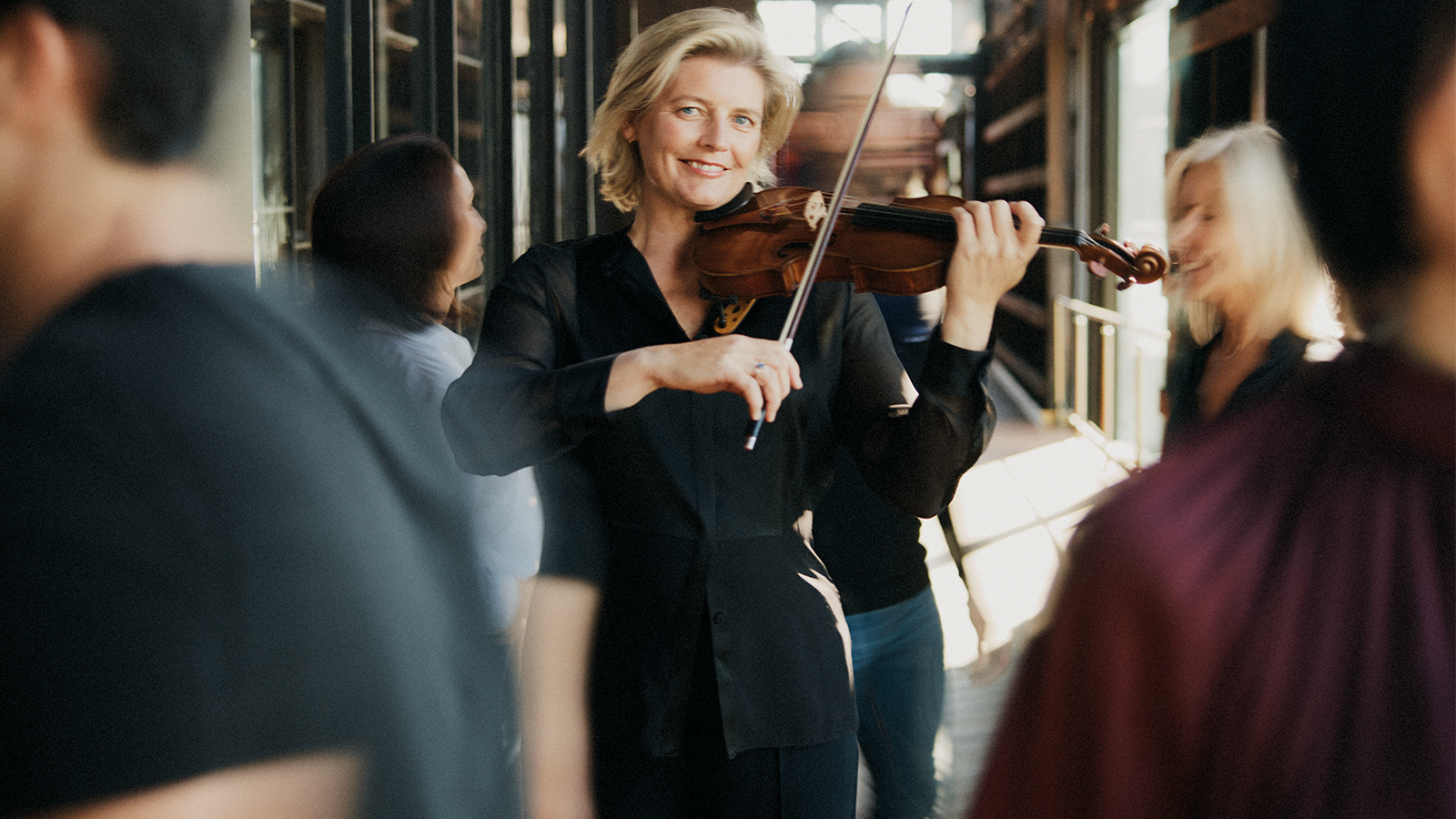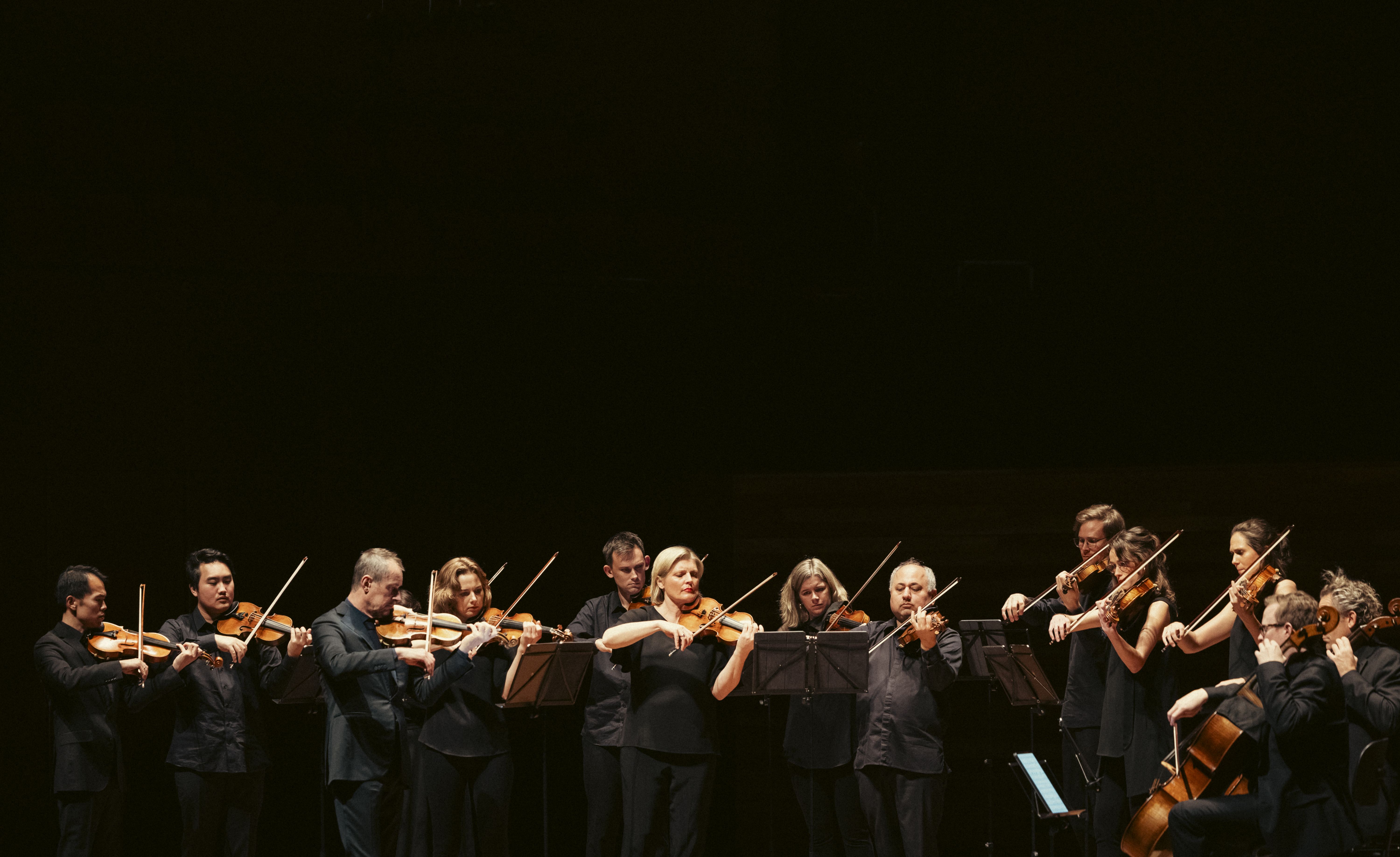
Colour, compromise, character actor: the viola's understated appeal
Pick up one viola, you’re a tenor, another, and you’re a baritone. With no standard form, every viola sounds different. “It’s a compromised voice,” says Lawrence Power, a British virtuoso and one of the leading violists of the century.
Not as showy as the violin, not as loud as the cello, the viola has long lived in the middle. Like the wide range of human voices, the viola has different registers and can convey different emotions. In this way, it’s an emotional voice, a character actor with a pathos you just can’t ignore, Power explains. But throughout the past few centuries, most composers have done just that – writing plenty of harmonic colour for violas, but little in the way of showy solos or concertos. Power is out to change all that.
“There’s something mysterious about it and something quite meditative.”
BRINGING PEACE
“You have to be able to play your instrument in so many different contexts, not just in a solo context. Be flexible. Be inspired by all kinds of different music.”
Cash for concertos
In 2019, Power established the Viola Commissioning Circle, with the goal of funding 10 new viola concertos by 2030. The idea is simple: the circle, funded by philanthropists, underwrites new works (commissioning and paying the composer) before a co-commissioner is found to fully fund the work (paying back the circle, who can then commission again). It can halve the time from idea to performance, and already, the VCC has funded a Viola Concerto by Gerald Barry (2019), Anders Hillborg (2021), Cassandra Miller (the acclaimed ‘I cannot love without trembling’, 2023) and Magnus Lindberg (2024). Power’s contribution to the field is already titanic, and his inspiration is only growing.
A Very British Instrument
Power is following in the footsteps of early 20th century English violists Lionel Tertis and William Primrose, who convinced their contemporaries Vaughan Williams, Bartok, Britten and Walton to write what became some of the major pieces of viola repertoire. It’s one reason the viola seems so British. “Maybe it’s that slight sense of reserve, inwardness, and saying sorry all the time,” Power jokes. “Maybe that suits the sound of the viola.” This connection with Britian inspired next year’s Isles of Light, his first time directing the ACO in an eclectic program grounded in the lush landscapes and thriving cities of Great Britain. There, he’ll premiere the latest work of the Viola Commissioning Circle, performing a new concerto by friend and frequent collaborator Garth Knox. It features alongside Vaughan Williams’ awe-inspiring Fantasia on a Theme by Thomas Tallis, along with a mix tape of English music and Elizabeth Maconchy’s delightfully spiky Symphony for Double String Orchestra.
Power finds endless inspiration in the English countryside, where he grew up. “I love the greenery, the silence, and the cosiness of nature,” he explains. It’s an antidote to the frenetic lifestyle of an international musician – travelling, performing, socialising all the time.
Freedom to create
At 48 years old, Power isn’t content to be one of the world’s best violists, acclaimed all over the world. He picked up the violin “for musical nourishment” and now can (and does, in performance) swap effortlessly between the two instruments. The viola will always be his mother tongue, he says, “but you can speak other languages even if you have an accent!” For the virtuoso, what you want to say musically is far more important than being the best. And it turns out, he has a lot to say.
Power delights in new music, in freshness, in the privilege of creating something for the first time. It’s the job of the performer “to present new music in an interesting way, to give these pieces a good birth”. Even with older repertoire, there’s a special freedom that comes with playing an underappreciated instrument. Because there aren’t famous performances setting audience expectations, you can play with your own interpretation, he says.
A Soloist On a Mission
Power began playing the viola at 7, and unlike many violists, did not begin with the violin first. He happened to receive a viola when the school handed out instruments, and he fell in love with it. Power studied at Guildhall School of Music and Julliard but left study behind at age 20 to pursue his performance career. At just 25 years old, the Berlin Philharmonic asked him to lead their viola section. But Power ended up turning down what he thought must be “the greatest job in the world”. Why? When his Mum came to see him perform Mahler with the Berlin Philharmonic, she couldn’t hear him play. Power didn’t want to be one of many. His charisma, passion and creativity need a place to shine. He’s found that collaborating with some of the world’s greatest composers and performers as a soloist, chamber ensemble performer and director-player. This year, he’ll perform alongside Nicholas Alstaedt, Ilya Gringolts, Ryan Wigglesworth and Simon Crawford-Phillips, and is a regular guest with the world’s most prestigious orchestras.
